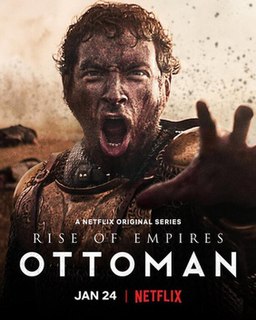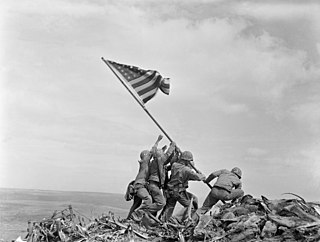
The 15th century was the century which spans the Julian dates from 1 January 1401 (MCDI) to 31 December 1500 (MD).

Vasco da Gama, 1st Count of Vidigueira, was a Portuguese explorer and the first European to reach India by sea.

Bartolomeu Dias was a Portuguese mariner and explorer. In 1488, he became the first European navigator to round the southern tip of Africa and to demonstrate that the most effective southward route for ships lay in the open ocean, well to the west of the African coast. His discoveries effectively established the sea route between Europe and Asia.

Colonial India was the part of the Indian subcontinent that was occupied by European colonial powers during the Age of Discovery. European power was exerted both by conquest and trade, especially in spices. The search for the wealth and prosperity of India led to the colonisation of the Americas after Christopher Columbus went to the Americas in 1492. Only a few years later, near the end of the 15th century, Portuguese sailor Vasco da Gama became the first European to re-establish direct trade links with India since Roman times by being the first to arrive by circumnavigating Africa. Having arrived in Calicut, which by then was one of the major trading ports of the eastern world, he obtained permission to trade in the city from the Saamoothiri Rajah. The next to arrive were the Dutch, with their main base in Ceylon. Their expansion into India was halted after their defeat in the Battle of Colachel by the Kingdom of Travancore, during the Travancore–Dutch War.

Pedro, or Pêro da Covilhã or, sometimes written: Pero de Covilhăo, was a Portuguese diplomat and explorer.

A padrão is a stone pillar left by Portuguese maritime explorers in the 15th and 16th centuries to record significant landfalls and thereby establish primacy and possession. They were often placed on promontories and capes or at the mouths of major rivers. Early markers were simple wooden pillars or crosses but they deteriorated quickly in the tropical climate where they were often erected. Later, padrões were carved from stone in the form of a pillar surmounted by a cross and the royal coat of arms.
The Goa Inquisition, Being a Quatercentenary Commemoration Study of the Inquisition in India is a book published by Mumbai University Press and authored by Anant Priolkar. It is a narrative of the Goan Inquisition organised by the Portuguese rulers of Goa.

}
History of Goan Catholics recounts the history of the Goan Catholic community of the Indian state of Goa from their conversion to Christianity to date.
Gaspar da Gama also known as Gaspar da India and Gaspar de Almeida was an interpreter and guide to several fleets of the Portuguese maritime explorations. He was of Jewish origin and was probably born in Poznań in the Kingdom of Poland. In 1498 he was taken captive aboard Vasco da Gama's fleet on its return voyage to Portugal from India. He was known to speak multiple languages including Hebrew and Chaldean, as well as a mixture of Italian and Spanish.

The Battle of Chaul was a naval battle between the Portuguese and an Egyptian Mamluk fleet in 1508 in the harbour of Chaul in India. The battle ended in a Mamluk victory. It followed the Siege of Cannanore in which a Portuguese garrison successfully resisted an attack by Southern Indian rulers. This was the first Portuguese defeat at sea in the Indian Ocean.

The Portuguese conquest of Goa occurred when the governor Afonso de Albuquerque captured the city in 1510 from the Adil Shahis. Goa became the capital of the Portuguese State of India which included possessions such as Fort Manuel, the territory of Bom Bahia, Damann and Chaul. It was not among the places Albuquerque was supposed to conquer. He did so after he was offered the support and guidance of Timoji and his troops. Albuquerque had been given orders by Manuel I of Portugal to capture Ormus, Aden and Malacca only.
The Battle of Dabul was a retaliatory attack by the forces of the Viceroy of Portuguese India, Francisco de Almeida, upon the port city of Dabul in the Sultanate of Bijapur. It occurred on 29 December 1508, in retaliation for attacking the Portuguese armada en route to the Battle of Diu. Despite the presence of a double wooden wall and a ditch, the Portuguese using both an artillery bombardment and a pincer movement of armed soldiers, "slammed into the town. What followed was a black day in the history of European conquest that would leave the Portuguese cursed on Indian soil." The conquerors were merciless--all living creatures were slaughtered then the city set on fire to burn alive those who had managed to hide in secret. The Portuguese departed on January 5, 1509. "This massacre stood beside [Vasco de] Gama's destruction of [the Hajj pilgrim ship] the Miri as an unforgiven act that lingered long in the memory".

The siege of Aden occurred when the Portuguese Governor of India, Afonso de Albuquerque, launched an unsuccessful expedition to capture Aden on 26 March 1513.
Mustafa Bayram was from Yemen and Selman Reis' nephew. After Selman Reis fell into a dispute with Hayreddin al-Rumi in 1528, he was murdered later on by al-Rumi. The two had fights because Selman Reis was relieved of the duty to lead the Ottoman Navy in the Red Sea and Indian Ocean. However he refused to step down and continued to lead the navy. Nonetheless, the post had been given to al-Rumi. Before Selman Reis was killed, he had given an order to Mustafa Bayram and Hoca Sefer. Under Mustafa Bayram's supervision, they would go to Diu and help Bahadur Shah of Gujarat to fight against the Portuguese Empire.
Roger Crowley is a British historian and author known for his books on maritime and Mediterranean history.

Rise of Empires: Ottoman is a Turkish historical docudrama, starring Cem Yiğit Üzümoğlu and Tommaso Basili. Its first season, which consists of 6 episodes, is directed by Emre Sahin and written by Kelly McPherson. The series became available for streaming on Netflix on 24 January 2020. It deals with the Ottoman Empire and Mehmed the Conqueror and tells the story of the Fall of Constantinople.

The Conquering Tide: War in the Pacific Islands, 1942–1944 is the second volume in the Pacific War trilogy written by best selling author and historian Ian W. Toll. The book is a narrative history of the middle phase of the Pacific War, which took place in the central and southern Pacific between the Allies and the Empire of Japan. It was published by W. W. Norton & Company in 2015 and 2016 (paperback). It was released as an audiobook narrated by P. J. Ochlan by Recorded Books in 2015. The first volume in the trilogy, Pacific Crucible: War at Sea in the Pacific, 1941–1942, was published in 2011; the final volume in the trilogy, Twilight of the Gods: War in the Western Pacific, 1944–1945, was published in 2020.

The Pacific War Trilogy is a three-volume history of the war in the Pacific, written by best selling author and military historian Ian W. Toll. The series was published by W. W. Norton & Company. Toll is a graduate of St George's School in Middletown, Rhode Island. In 1989, he received an undergraduate degree in American history from Georgetown University; in 1995 he received a master's degree in public policy from Harvard Kennedy School at Harvard University.

Goa, Damaon & Diu were one of Portugal's oldest colonies, being established in 1510. During the Napoleonic Wars, the Portuguese were concerned at being unable to defend their empire from predatory French or her allied navies. Due to the historic Anglo-Portuguese Alliance, British India was keen to assist in Goa's security. Britain dispatched a Royal Naval squadron as well as an army of 10,000 soldiers. The British soldiers were posted at strategic locations like Aguada, Miramar, Caranzalem, Palacio do Cabo and Morumugão. The soldiers built huge fortifications in these areas to help defend them. This amicable agreement ended in 1813 thanks largely to the massive defeat of the French and Spanish fleets at Trafalgar in 1805. There are two distinct phases of the period, from 1797 to 1798 and from 1802 to 1813. For the next century, no country was capable of challenging the power of the Royal Navy. Goa could benefit from Pax Britannica.














